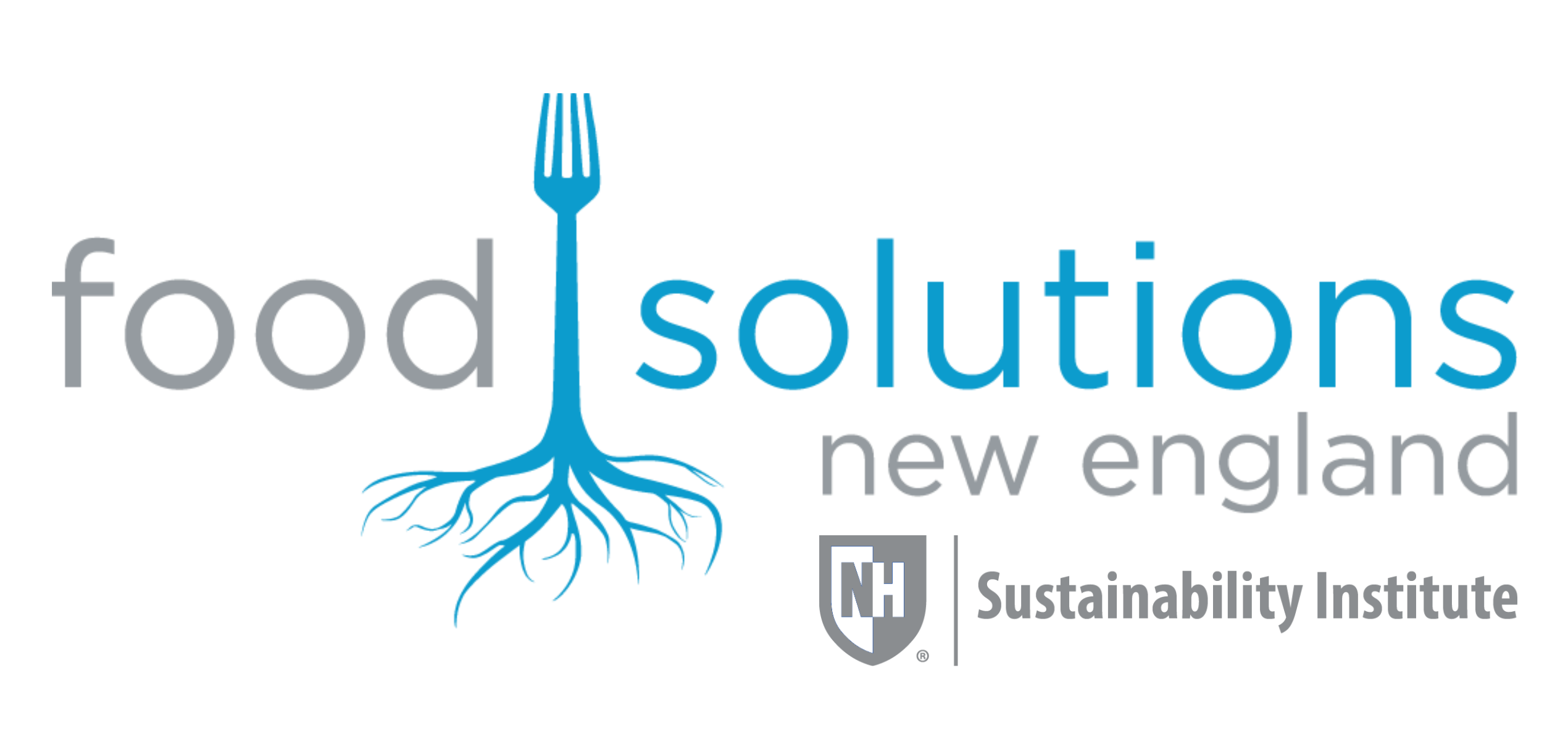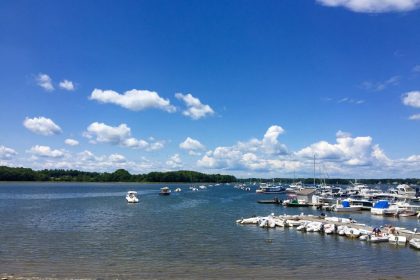
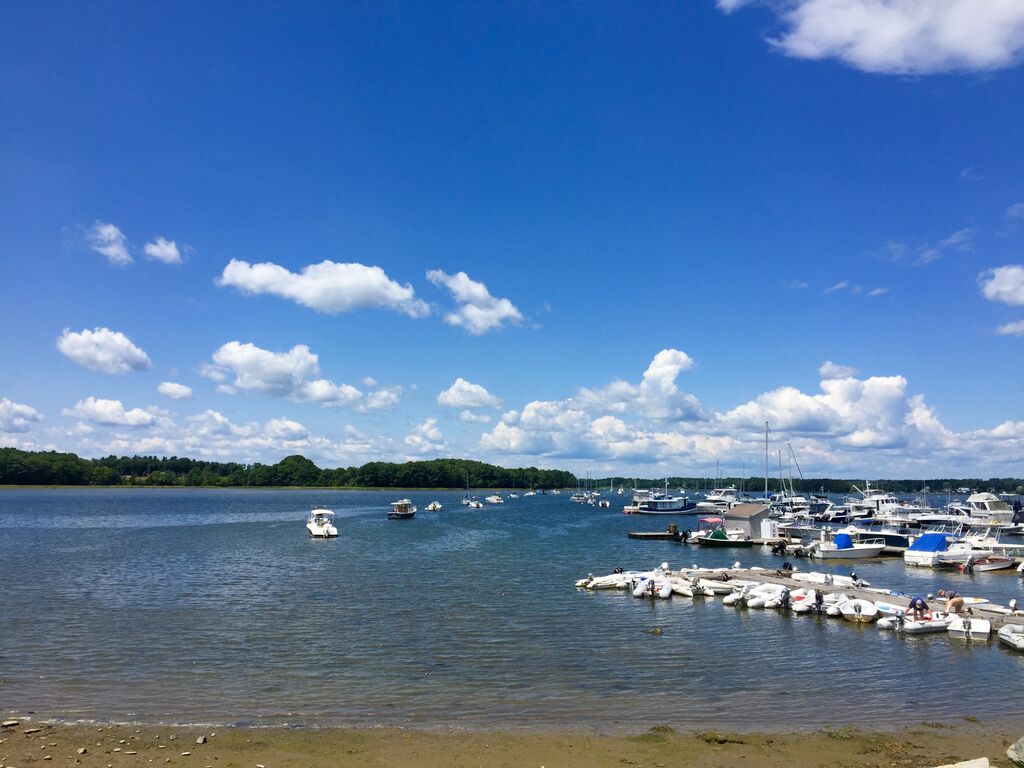 On a picturesque, sunny July day, I had the opportunity to get out on the water for a tour of Fox Point Oysters. Located in Little Bay, part of the Great Bay Estuary in New Hampshire, Fox Point Oysters provides fresh, sustainable, and delicious oysters. Behind the farm stands Laura Ward, an artist by training who got hooked on to oyster farming in 2012.
On a picturesque, sunny July day, I had the opportunity to get out on the water for a tour of Fox Point Oysters. Located in Little Bay, part of the Great Bay Estuary in New Hampshire, Fox Point Oysters provides fresh, sustainable, and delicious oysters. Behind the farm stands Laura Ward, an artist by training who got hooked on to oyster farming in 2012.
The farm currently spans across 1.5 acres, with a total of 75 oyster cages. Fox Point Oysters distributes to numerous restaurants in the Seacoast area, including in Portsmouth, Rye, and Dover. The farm also works with distributors and retailers in the region and sells directly to customers.
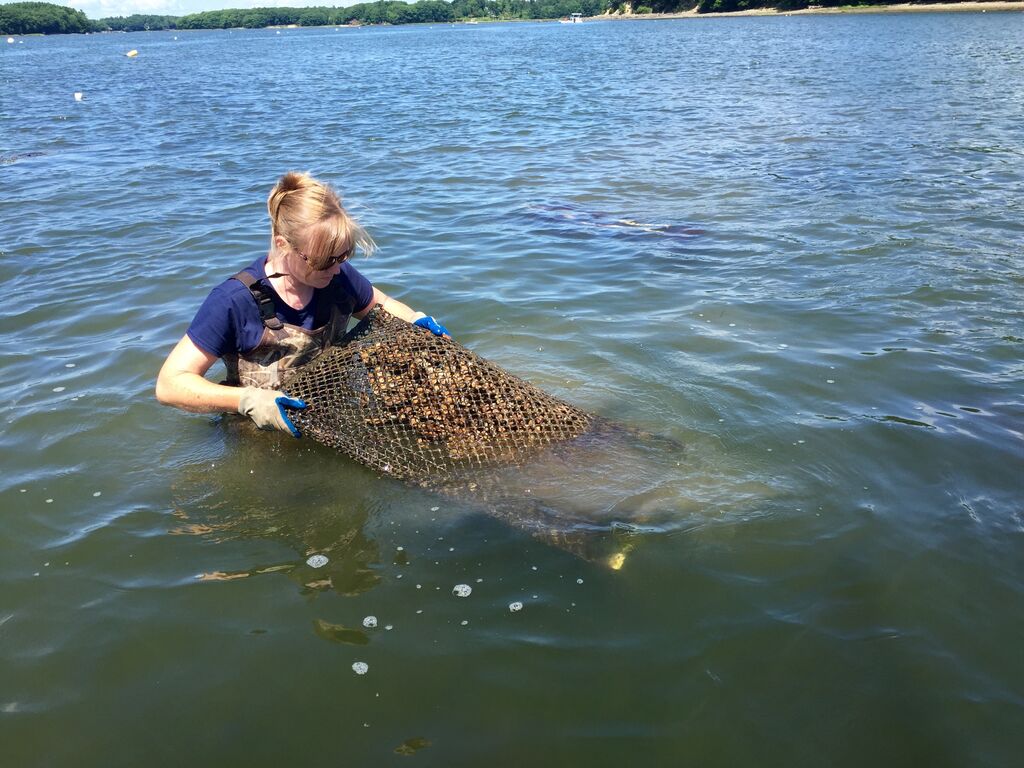
In addition to being fresh and nutritious, oysters provide a lot of ecosystem services. They are a keystone species, which means that they control the environment through filter feeding. They feed by filtering microscopic particles in water, thus removing nutrients and sediments. They are effective purifiers, a single oyster can clear over 15 gallons of water in a day! Additionally, the spaces between their shells provide habitat for juvenile fish, crabs, and other organisms on which they feed, stimulating aquatic diversity.
However, with climate impacts, the future of oysters is in peril. While climate change is not something Laura frets over on a day-to-day basis, it is an issue that concerns her given the vulnerability of oysters to climate impacts. As atmospheric carbon dioxide rises, about one quarter is absorbed in the oceans. The absorption of carbon dioxide in ocean water reduces its pH, making the ocean more acidic.
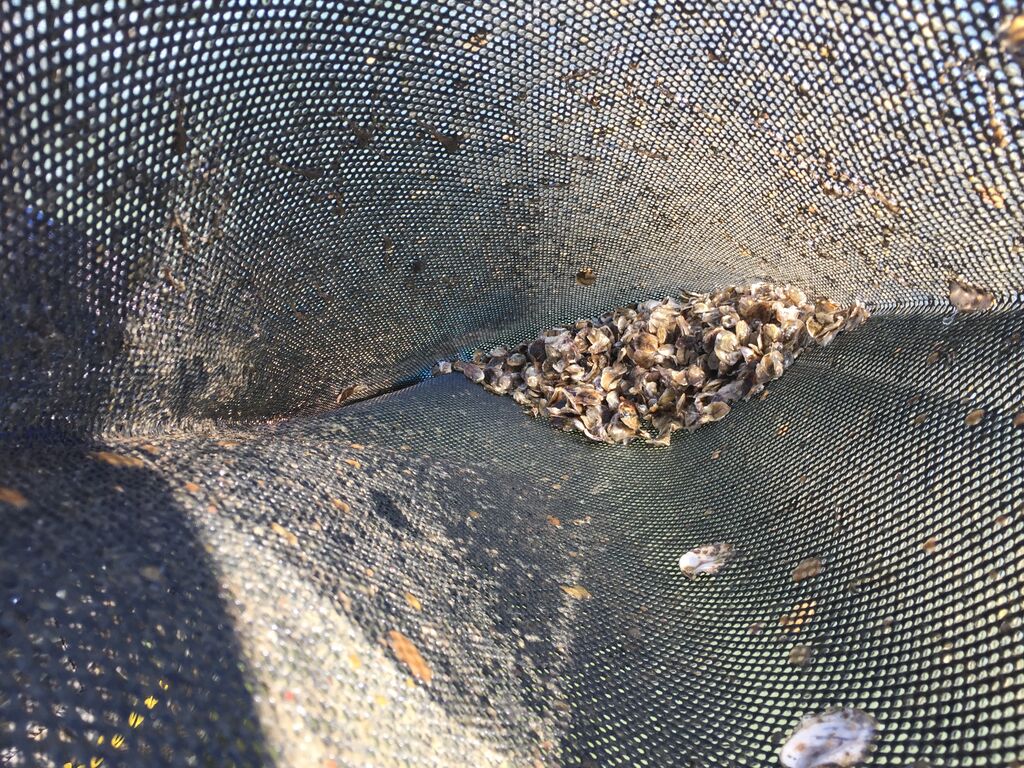
Ocean acidification significantly impacts marine organisms, especially those who build their shells from calcium carbonate, including oysters. With ocean acidification, these organisms face two threats: their shells dissolve more readily and fewer carbonate ions are available for uptake to build shells and skeletons.
The looming threat of climate impacts is a deep concern for aquaculture, a growing sector of the New England economy. According to the 2012 Census, New England had over 350 farms involved in some type of aquaculture, with over 200 of those farms focused on mollusk production. For this reason, sustainable aquaculture and continuing research on climate impacts is critical to the New England economy.
Ravdeep Jaidka is a Climate Fellow at the University of New Hampshire Sustainability Institute. She is spending the summer touring farms and fisheries around New England and engaging farmers and fisherman in conversations on how to build resilience in our regional food system.
